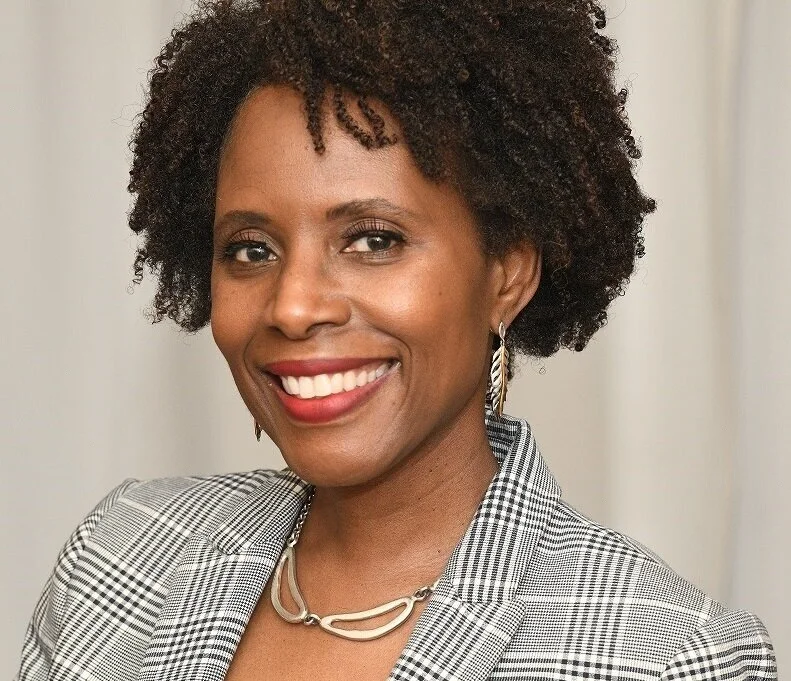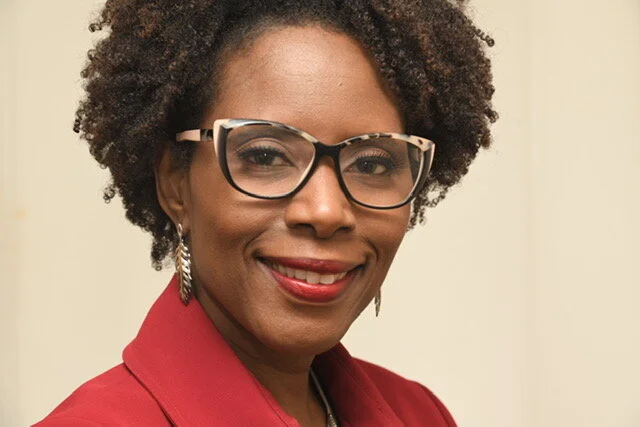Equity and Anti-Black racism need to be owned throughout Peel school board, says new Interim Director of Education
August 5, 2020
In times of crisis when real leadership is required, courage is necessary in stepping up and saying, ‘I am ready for that test’.
With the Peel District School Board (PDSB) in turmoil in the last year, Colleen Russell-Rawlins put her hand up and was chosen to right the ship.
On August 5, she assumed the role of permanent interim Director of Education.
“It was about the voices of the community asking for change and various events that happened that are connected to the school board over the last year,” Rawlins said were some of her reasons for accepting the position. “In fairness, I have been watching it as an educator and a member of the Black community for some time. But what really has drawn me to the Peel District School Board is a sense of purpose to serve as part of systemic reform that’s founded on a mandate towards greater racial equity and, in particular, the eradication of Anti-Black racism. I obviously identify as a Black woman so I understand through my own personal experience what that feels like and I want to be part of an organization that actively demonstrates an ongoing commitment to disrupting Anti-Black racism and the disproportionately negative outcomes for Black youths academically as well as their experiences in schooling.”
Last November, the province’s Minister of Education Stephen Lecce directed a review of the PDSB following Anti-Black racism and dysfunction allegations. After extensive consultations, his office issued several directions to the board to tackle the issues.
In April, the Ministry of Education appointed Arleen Huggins to conduct an investigation of the school board’s dysfunction and acrimony.
In her report submitted three weeks later, the former Canadian Association of Black Lawyers president concluded that the board didn’t have the ability to provide good governance or to effectively carry out its responsibilities to oversee and ensure compliance with the directions.
Director of Education Peter Joshua was relieved of his position on June 23 with Lecce saying, ‘Clearly this Board required some change’.
Russell-Rawlins steps into the role, knowing that Black parents in Peel are seeking leadership that will ensure their children can attend classes without feeling victimized.
“I am realistic that it takes a community to change any public institution,” she pointed out. “For me, the key is connecting and hearing the voices of the Black Diasporic communities in Peel. This is work and change that has to be done with them and with our young people who are really leaders, not only in Anti-Black racism, but in thinking about how education needs to be different in order to serve their future. Secondly, I firmly believe that equity and Anti-Black racism need to be owned throughout the organization. The experience in schools needs to be different and in classrooms, but also through the policies and procedures we put in place and that we implement diligently. I want to be able to communicate that to Black families so that they can see the change that is happening and provide feedback and that this change is across the organization.”
Russell-Rawlins joins Peel’s largest employer that was the first to hire a Black Director of Education in Canada.
Harold Brathwaite, who broke the colour barrier 26 years ago, died on his 80th birthday on May 31.
“He was a titan,” she said. “Harold was someone who would always cross the room to say hello, shake your hand and encourage you. I wouldn’t say I had a personal relationship with him, but he was just such a leader and a role model. So, as I go into Peel, I carry him both in my heart and mind. I will be a different leader as he would very much expect me to be.”
With nearly 20 per cent of public school boards’ Directors of Education vacating their seats this year, the provincial government announced plans last month to lift the condition that a Director of Education must be a teacher.
An Associate Director of Equity, Well-Being, Early Years and School Improvement with the Toronto District School Board (TDSB) prior to her appointment in Peel, Russell-Rawlins worries about how the potential changes will impact public education.
“I have a healthy level of skepticism,” she said. “Where are there other examples in public education where this has worked? Especially, where it has worked is for the greater goal towards racial equity and eliminating other forms of discrimination. Also, is the corollary true, specifically when educators like myself should be able to go out and lead large corporations? Do we believe that?”
In an exceptional 29-year career with Canada’s largest school board, Russell-Rawlins held several roles, including Teacher, Principal, Consultant and Superintendent. As an Associate Director, her team was responsible for several aspects of the board’s Multi-Year Strategic Action Plan centred on ending various forms of streaming by improving early literacy and improving access to academic pathways in addition to responsibilities for professional learning in Equity, Anti-Racism and Anti-Oppression.
She was at the province’s Literacy & Numeracy Secretariat as it was developed by Dr. Avis Glaze who is a former York Region District School Board Associate Director of Education and Kawartha Pine Ridge District School Board Superintendent and Director of Education.
Glaze is delighted with Russell-Rawlins’ new appointment.
“I will always remember when I met her many years ago and I said to her at the time, ‘You will be a Director of Education’,” the world renowned educator recounted. “I saw in her the necessary qualities to fill that leadership position. Her competency exuded confidence and she always made sure she had the credentials. Colleen is also an inveterate learner and I think people who aspire to hold these positions must be open to new ideas and to learning with and from one another. Most importantly, she has a strong commitment to community in general and the education of Black, marginalized and immigrant students in particular. She’s perfect for this job and I know she will take that system to new heights of attainment.”
Russell-Rawlins was instrumental in the development of a proposal to establish The Centre of Excellence for Black Student Achievement that is the first of its kind in Canada. The concept for the Centre was proposed two years ago by the TDSB’s Enhancing Equity Task Force.
It will, among things, provide support to Black students to combat racism, use evidence to highlight promising practices and engage in meaningful research on topics relevant to Black students and engage in strategic community partnerships related to education.
“It is critical that the Centre hold a mirror up to us as leaders about the ways in which Anti-Black racism manifests itself in the TDSB so we can become more responsive to and accountable for dismantling it while simultaneously providing a space of hope, agency and change for Black students and their families,” said the Ontario Public Supervisory Officers’ Association first Black President.
The Centre will be supported by 20.5 staff positions, including a social worker, child & youth counsellor and five graduation coaches all focused on supports for Black students, improving students’ experiences and identifying the ways in which Anti-Black racism is operating in the TDSB and offering possible solutions to eradicate it.
Russell-Rawlins comes from a family that’s closely knit and very open about what it means to have a Black identity in Toronto and how to navigate racism and sexism.
That grounding has served her well.
“They also told us about the history of Black people around the world, but it didn’t start with slavery,” the advocate for education equity said. “So it was a really positive racial identity and I think that that’s what helped me to navigate the system by understanding who I am differently than the stories people were telling about the stereotypes and limitations that people believe I would have. I never believed I had those limitations.”
Graduating from Albert Campbell Collegiate Institute and York University with undergraduate and graduate degrees, she became a qualified teacher in 1991 at Flemington Rd. Elementary School in the Lawrence Heights community.
“This was a school that was predominantly attended by Black students although it was very diverse,” said Russell-Rawlins who has a passion for social change, literacy, the arts and young children. “I remember in my first year the struggle to find accurate representation around positive identity and doing a unit on princes and princesses and the depiction of African princesses looking more like Cleopatra than they did with me. That really kind of enraged me and some of my students and eventually the educators and leaders at the time put me on a committee to look at Social Studies and how it was taught and the resources that were used. I think that was really one of the turning points in my career. It also affirmed my advocacy as to the difference I could make when I was talking to other educators and that really was the spark. Students and parents were also part of it. Those were really good lessons for me to learn in my first year of teaching that, I think, really formed the foundation of how I worked throughout my career.”
Madge Logan was her first Principal.
She said Russell-Rawlins was looking for a placement that her school provided.
“For her practice teaching assignment, Colleen wanted to be in a diverse setting,” recalled Logan who spent 38 years with the TDSB before retiring in 2002. “She did very well at the beginning and I could sense she would be an excellent teacher who would go places. She is someone who is very focused, very poised in terms of her reaction to people and situations and very determined as she wants to make a difference.”
Russell-Rawlins fondly remembers Logan making an incredible impression on her the first day she walked into Flemington Rd. Elementary School.
“The greeting I received from her probably changed my whole trajectory as a teacher,” she said. “Madge is someone who carries herself with such determination and commitment to education and the education of Black children and that led to a significant change in that school.”
Lloyd McKell, who spent 35 years in public education with the TDSB before retiring nine years ago as Executive Officer responsible for Student & Community Equity, expects Russell-Rawlins to shine in her new role.
“She is a very strong administrator and one of her strengths is curriculum development,” he said. “It was obvious that she possesses leadership potential.”
McKell took an ‘English as a Second Language’ video, that Russell-Rawlins produced for the board, to Germany when he led a TDSB team in 2009 that made presentations in four cities on the board’s work in equity and education in inner city schools.
“The Germans were looking for ideas on how to teach young immigrants who didn’t speak German and I thought that video would be very useful for them,” he said.
Outside the public school environment, Russell-Rawlins is an avid reader who enjoys cooking, gardening and making natural hair cream.
She joins Carlene Jackson with the TDSB and Camille Williams-Taylor with the Ottawa-Carleton District School Board as Black women who are at the helm of Ontario school boards.
Jackson’s time with the TDSB is brief as she’s set to become Ontario’s first Comptroller General on October 13. It’s a Deputy Minister level position.






